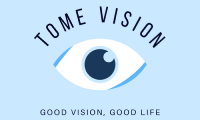What to Expect During an Eye Exam
Regular eye exams are an essential part of maintaining good eye health and ensuring clear vision. Many people tend to neglect their eyes until they experience problems, but early detection of vision issues can help prevent further complications. If you have never had an eye exam or it has been a while since your last one, understanding what to expect can help ease any anxieties you may have about the process. Here is a breakdown of what typically happens during an eye exam.
Pre-Exam Procedures:
Before the actual examination takes place, you will likely be asked to fill out some paperwork detailing your medical history, any medications you are taking, and any known eye-related concerns or issues. This information will help the optometrist or ophthalmologist tailor the eye exam to meet your specific needs. It is important to be thorough and accurate when completing this form, as it can provide valuable insights into your overall health and aid in the diagnosis of any potential eye conditions.
Visual Acuity Testing:
One of the primary components of an eye exam is testing your visual acuity. This test measures how well you can see at various distances and determines whether you need corrective lenses. You will be asked to read letters or numbers on a standardized eye chart while standing a specific distance away. The optometrist or ophthalmologist will assess your ability to accurately identify these characters.
Refraction Assessment:
If your visual acuity test indicates potential refractive errors, your eye doctor may perform a refraction assessment. This test helps determine the right lens prescription for you, whether you need glasses or contact lenses. During this process, you will be asked to look through a device called a phoropter. The eye care professional will present different lens options and ask you which provides the clearest vision. Based on your responses, they will be able to determine your optimal lens prescription.
Additional Tests:
Depending on your age, medical history, and any specific concerns you may have, your eye doctor may perform additional tests. These can include assessments of peripheral vision, depth perception, color vision, and eye muscle movements. They may also check for common eye conditions, such as glaucoma or cataracts, by using specialized equipment to examine the internal structures of your eyes.
Eye Health Evaluation:
The final aspect of an eye exam is a comprehensive assessment of your eye health. Your eye doctor will use various tools and techniques to examine the front and back portions of your eyes. This examination allows them to identify any abnormalities, such as macular degeneration, diabetic retinopathy, or even signs of systemic diseases like high blood pressure or diabetes. Dilating eye drops may be used to widen your pupils, enabling a better view of the internal structures.
Key Takeaways:
– Eye exams are crucial in maintaining good eye health and preserving clear vision.
– Pre-exam procedures typically involve filling out medical history forms to provide valuable insights.
– Visual acuity testing assesses how well you can see at different distances.
– Refraction assessments help determine the appropriate lens prescription if required.
– Depending on your needs, additional tests may be performed, such as peripheral vision or eye muscle movement assessments.
– A comprehensive eye health evaluation is crucial to identifying any abnormalities or signs of systemic diseases.
Regular eye exams, usually recommended once every one to two years, are essential for everyone, regardless of age or vision problems. These examinations not only help detect potential issues early on but also provide an opportunity to discuss any concerns you may have with your eye care professional. Remember, your eyes are a valuable asset; taking care of them through regular eye exams is an investment in your overall health and well-being.
